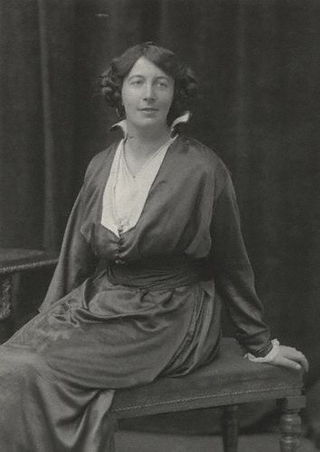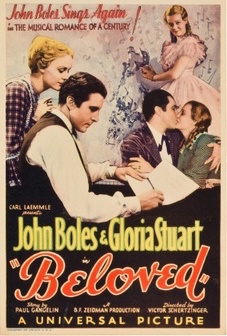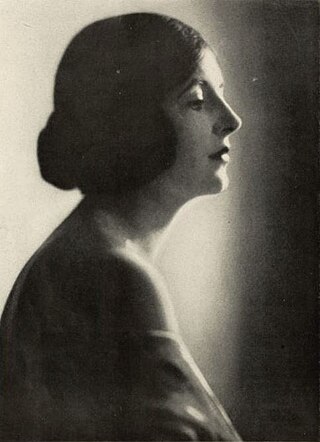
Herbert Brenon was an Irish-born U.S. film director, actor and screenwriter during the era of silent films through 1940.

Fannie Hurst was an American novelist and short-story writer whose works were highly popular during the post-World War I era. Her work combined sentimental, romantic themes with social issues of the day, such as women's rights and race relations. She was one of the most widely read female authors of the 20th century, and for a time in the 1920s she was one of the highest-paid American writers. Hurst actively supported a number of social causes, including feminism, African American equality, and New Deal programs.

Mary Brian was an American actress who made the transition from silent films to sound films.

Dorothy Janis was an American actress.

Laugh, Clown, Laugh is a 1928 American silent drama film starring Lon Chaney and Loretta Young. The movie was directed by Herbert Brenon and produced by Irving G. Thalberg for MGM Pictures. A sound version of this film was released in the second half of 1928 and featured a synchronized musical score with sound effects. The film was written by Elizabeth Meehan, based on the 1923 Broadway stage production Laugh, Clown, Laugh by David Belasco and Tom Cushing, which in turn was based on the 1919 play Ridi, Pagliaccio by Fausto Maria Martini.

Enchantment is a 1948 American romantic drama film directed by Irving Reis and starring David Niven, Teresa Wright and Evelyn Keyes. It was produced by Samuel Goldwyn, and based on the 1945 novel A Fugue in Time by Rumer Godden.

Winifred Westover, birth name Winifred Heide, was an actress of the 1910s and 1920s. Her career included films made in Hollywood, Sweden and New York.

The Impossible Mrs. Bellew is a 1922 American silent drama film directed by Sam Wood and starring Gloria Swanson. The film is based on the 1916 novel of the same name by David Lisle.

The Racketeer is a 1929 American Pre-Code drama film. Directed by Howard Higgin, the film is also known as Love's Conquest in the United Kingdom. It tells the tale of some members of the criminal class in 1920s America, and in particular one man and one woman's attempts to help him. Gossip columnist Hedda Hopper appears in a minor role. The film is one of the early talkies, and as a result, dialogue is very sparse.

Amy Roberta (Berta) Ruck was a prolific Welsh writer of over 90 romance novels from 1905 to 1972. She also wrote short stories, an autobiography and two books of memoirs. Her married name was Mrs Oliver Onions from 1909 until 1918, when her husband changed his name and she became Amy Oliver.

The Passing of the Third Floor Back is a 1935 British drama film directed by Berthold Viertel and starring Conrad Veidt, Anna Lee, Rene Ray and Frank Cellier. The film is based on a 1908 play by Jerome K. Jerome and depicts the various small-minded inhabitants of a building and ways they are affected by the arrival of a stranger who works to redeem them. The work had previously been adapted into a 1918 film version by Herbert Brenon. The film or play is referenced in Ngaio Marsh's 1941 novel, Death and the Dancing Footman.

Marie Mattingly Meloney (1878–1943), who used Mrs. William B. Meloney as her professional and social name, was "one of the leading woman journalists of the United States", a magazine editor and a socialite who in the 1920s organized a fund drive to buy radium for Marie Curie and began a movement for better housing. In the 1930s, nicknamed Missy, she was a friend and confidante of Eleanor Roosevelt.

Harold Kyrle Money Bellew was an English stage and silent film actor. He notably toured with Cora Brown-Potter in the 1880s and 1890s, and was cast as the leading man in many stage productions alongside her. He was also a signwriter, gold prospector and rancher mainly in Australia.

Spring Handicap is a 1937 British comedy film directed by Herbert Brenon and starring Will Fyffe, Maire O'Neill and Billy Milton. The film was made by the Associated British Picture Corporation at their Elstree Studios and based on the play The Last Coupon by Ernest E. Bryan.

Elizabeth Meehan was a British screenwriter who worked in both Britain and Hollywood.

The Greene Murder Case is a 1929 talking film produced and released by Paramount Pictures and based on the novel The Greene Murder Case, by S.S. Van Dine. The novel had been published a year before this film was made. It stars William Powell in his second Philo Vance outing. Florence Eldridge and Jean Arthur costar.

Beloved is a 1934 American pre-Code drama film directed by Victor Schertzinger and written by Paul Gangelin and George O'Neil. The film stars John Boles, Gloria Stuart, Morgan Farley, Ruth Hall, Albert Conti and Dorothy Peterson. The film was released on January 22, 1934, by Universal Pictures.
Marie Halvey (1895–1967) was an American film editor known for her work during the late 1920s and early 1930s.

Fannie Bourke, also known as Fan Bourke or Fannie Burke, was an American stage and film actress, suffragist, and motion picture exhibitor. She worked on Broadway and appeared in silent films from the 1910s until the early 1930s.

Myrta Bonillas was an American actress of the silent film era known for her roles in films such as Shackles of Gold (1922), The Custard Cup (1923), The Claw (1927) and Lummox (1930).



















